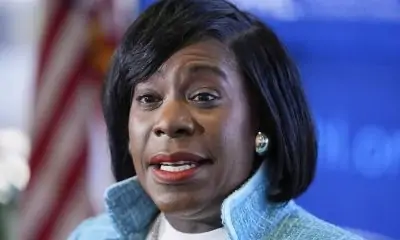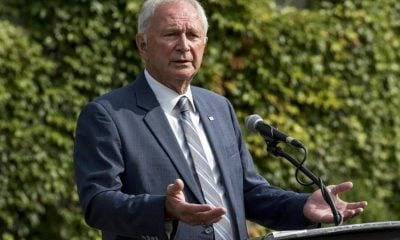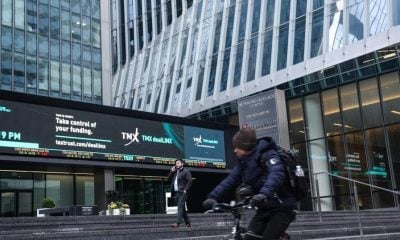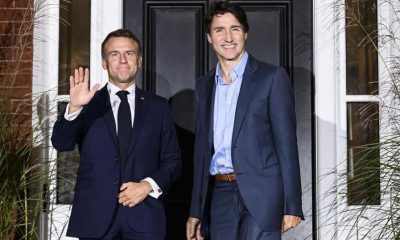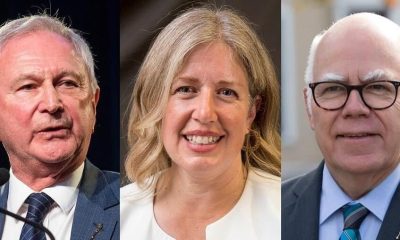In the U.S. polls are run constantly into the political preferences of voters based on ethnicity, in addition to gender, age, religion and other demographics.
Politics
Douglas Todd: Ethnic politics is already a science in the U.S. It’s on the way in Canada
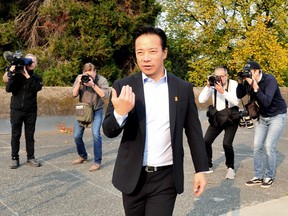
Opinion: Pollsters in Canada have been reluctant to probe how ethnicity affect politics. BUt the conversation here is becoming more open
Polls generally show two thirds of Hispanic Americans vote Democrat, while one third lean Republican. Only one in 10 Black voters are Republican and just 26 per cent of Asian-Americans. About one third of people of European descent cast ballots for Democrats, and just over half go Republican.
When I’ve asked Canadian politicians if their party conducts private polling on ethnicity, they all say, of course they do: Race-based strategies are crucial to any campaign. But no party has ever handed me their internal data.
Political scientist Shinder Purewal of Kwantlen Polytechnic University has had a similar experience. “I’ve spoken to a number of pollsters and they’re very reluctant to give ethnic numbers, while they’ll give numbers in general.”
One recent exception to this hands-off Canadian approach was a poll by YouGov, which revealed that Indo Canadians lean liberal-left. More than 38 per cent of respondents said last year they would cast a vote for the Liberals — twice the number that planned to go with the Conservatives.
Understanding the hopes and fears of ethnic groups can be a big political deal. In the city of Vancouver, 44 per of the population is of European descent, 20 per cent is of Chinese descent and 14 per cent are of South Asian descent. Indo Canadians are the largest group in Surrey, at 38 per cent compared to 33 per cent who are of European descent.
The Leger poll found the eventual winner in Vancouver, Ken Sim, who highlighted how he would be the city’s first Chinese Canadian mayor, appealed to 21 per cent of those of European ancestry, 15 per cent of South Asian voters and 35 per cent of those with Chinese roots.
Meanwhile, defeated mayor Kennedy Stewart — who was the last of an amazing streak of seven Vancouver mayors in a row of Scottish ancestry — appealed to 12 per cent of European-descent voters, 21 per cent of Indo Canadians and only five per cent of those of Chinese background.
Surrey was a different scenario. There, the three mayoral candidates who received the most votes are of European ancestry: Brenda Locke, Doug McCallum and Gordie Hogg. McCallum, the incumbent, did best in the districts that are overwhelmingly Punjabi, Purewal said.
“That tells you that people are actually paying attention to what politicians have to say, what they stand for,” Purewal said. “Many don’t care what (ethnic) flock you’re from.”
Housing affordability came out the top worry when Leger’s respondents named their top three issues: But that concern ran equally across ethnic lines.
Property taxes and spending were Vancouver residents’ third biggest issue, particularly since council had sharply increased both under Stewart’s guidance. Sim promised to be fiscally prudent, which would be important to ethnic Chinese voters, 36 per cent of whom cited taxation as a leading issue compared to 26 per cent overall.
Policing, public safety and crime was the fourth big issue. And Sim’s promise to hire 100 more police officers would have also played well with Chinese Canadian voters, 30 per cent of whom worried about crime compared to 25 per cent in general.
Sim also played down themes that Stewart and his council had pushed hardest — such as climate change, and especially social justice, equity and First Nations reconciliation. These were of low concern to all voters, particularly to those of Chinese background.
Such trends suggest to Purewal that, even while Sim often cited the scourge of anti-Asian racism and campaigned strongly through Chinese-language media outlets, he and his ABC party didn’t win simply because he was Chinese Canadian.
What of Surrey, B.C.’s second largest city? South Asians in Surrey, many of whom are foreign-born, were significantly more likely to rank housing affordability as a top worry, at 56 per compared to 38 per cent of people descended from Europeans. And Indo Canadians were the least likely to zero in on homelessness.
Even though the Leger poll initially suggested Surrey mayoral candidate Sukh Dhaliwal was the favourite of South Asians, the support did not carry the day for him. Locke and McCallum, who came in a close second, were able to draw votes from both South Asians and those of European descent.
A similar lesson about the value of cross-ethnic appeal can be taken from growing Richmond, B.C.’s fourth most-populous city.

Mayor Malcolm Brodie has been winning elections there for 21 years, despite people of European ancestry now being only 20 per cent of the population, down to 40,000 from 68,000 in 2001. Purewal said Brodie has cultivated the loyalty of a solid portion of the 113,000 Richmond residents of Chinese origin.
Sometimes race-based politics can burst into controversy, as it did this fall in Los Angeles, where a national furor erupted after top Latino politicians were caught in a secret recording making crude, racist remarks about Black rivals and voters. Similar things can happen in Canada.
But for the most part, U.S. and Canadian politicians don’t appear to take advantage of ethnic-based data to manufacture wedge issues: They simply see ethnic differences, as well as similarities, as fundamental factors to understand.
Let’s hope most North Americans politicians try to balance their desire to appeal to voters from specific ethnic groups with a larger commitment to social harmony.
Politics
New Brunswick election: Conservatives promise financial literacy curriculum
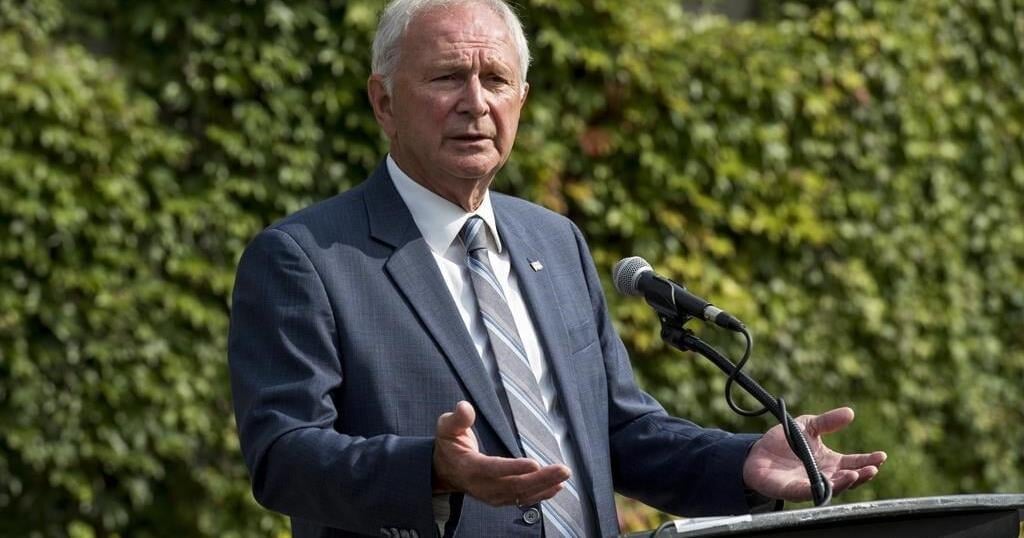
FREDERICTON – The leader of New Brunswick’s Progressive Conservatives is promising to make financial literacy part of the school curriculum if his party wins the Oct. 21 election.
Blaine Higgs, who is seeking a third term in office as premier, said today he wants all students to enter adulthood with a better understanding of how money works.
The new curriculum would teach students about budgeting, bank accounts, interest rates, inflation, mortgages, leases, loans and RRSPs, among other things.
Meanwhile, Liberal Leader Susan Holt pledged that, if elected to govern, her party would overhaul the province’s approach to mental health and addiction care by adding community outreach workers to deliver frontline support.
She says these frontline workers would help school psychologists, which she said are in short supply.
Later in the day, Green Party Leader David Coon said a Green government would impose a 2.5 per cent rent cap as part of a broader plan to increase the supply of affordable housing.
This report by The Canadian Press was first published Sept. 26, 2024.
The Canadian Press. All rights reserved.
News
Trudeau, French president Macron meet in Ottawa as trade deal challenges continue
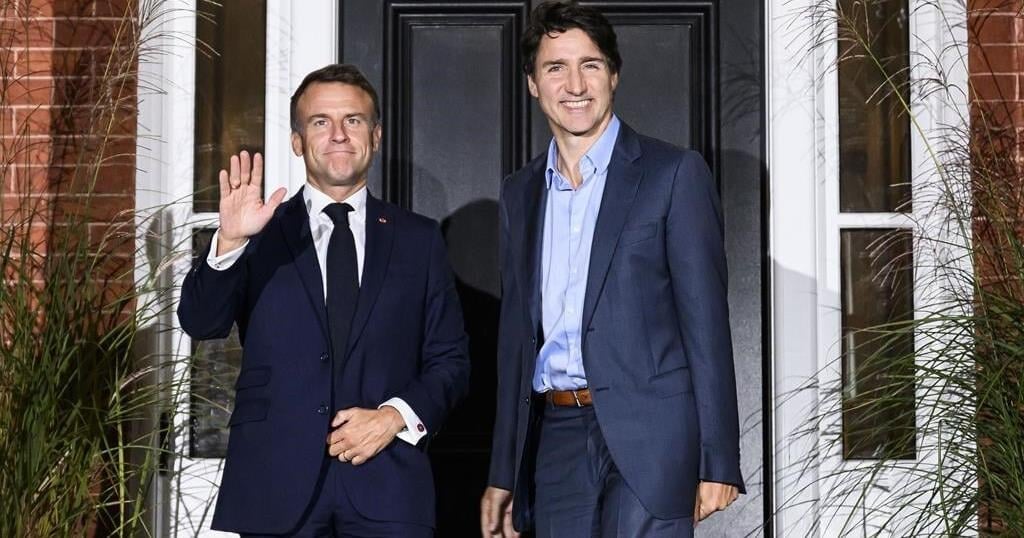
OTTAWA – French President Emmanuel Macron is in Canada for a brief visit to Ottawa and Montreal.
Macron arrived last night from New York and had an informal dinner at Prime Minister Justin Trudeau’s home at Rideau Cottage.
The two are having a formal meeting on Parliament Hill this morning before travelling to Montreal, where Macron will visit Quebec dignitaries and see the Port of Montreal.
The visit comes as both leaders face a rise in populist movements and discontent that has challenged each country’s policies on climate change and immigration.
It also follows a March vote by France’s senate to reject the European Union’s trade deal with Canada, against Macron’s wishes.
Macron last visited Canada in 2018 for a meeting of the G7 leaders.
This report by The Canadian Press was first published Sept. 26, 2024.
The Canadian Press. All rights reserved.
Politics
N.B. leaders return to campaign trail today after debate that put Higgs on defensive
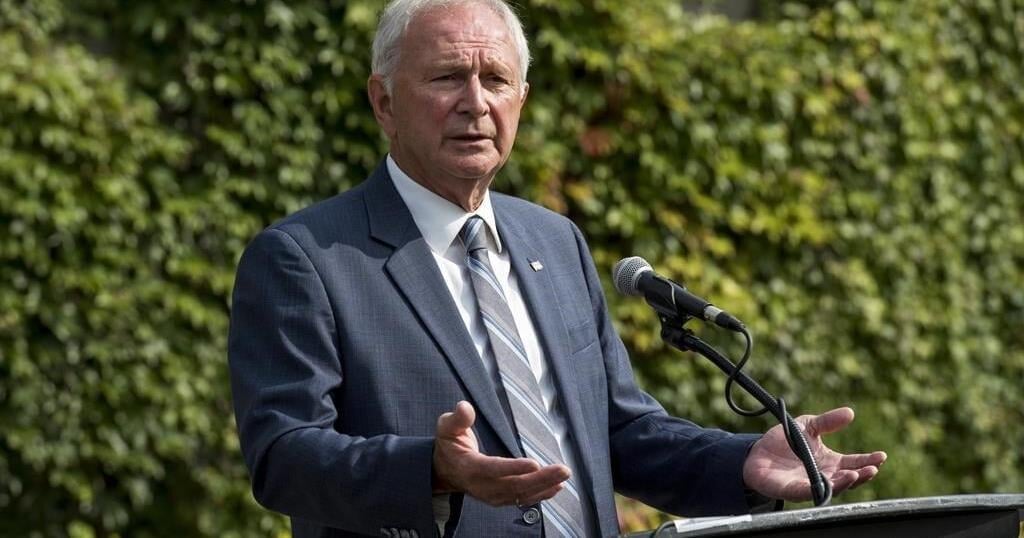
FREDERICTON – New Brunswick leaders return to the campaign trail today after Wednesday night’s leaders debate.
Progressive Conservative Leader Blaine Higgs spent much of the debate on the defensive, explaining why his promise to cut the harmonized sales tax by two percentage points wouldn’t hurt services.
Higgs, who is campaigning for a third term in office, said citizens know how to spend their money better than government, adding that his party will find “innovative” ways to improve the health system.
Liberal Leader Susan Holt says the promised cuts will cost $450 million a year and risk pushing the province toward privatized health care.
Today, Green Leader David Coon is scheduled to announce his plan for affordable housing in Fredericton, and campaign in his riding of Fredericton-Lincoln.
Holt is set to make an announcement on mental health, and then campaign in Higgs’s riding of Quispamsis, north of Saint John.
Higgs is scheduled to visit the Fredericton sports facility called Willie O’Ree Place.
This report by The Canadian Press was first published Sept. 26, 2024.
The Canadian Press. All rights reserved.
-

 Sports14 hours ago
Sports14 hours agoHoman kicks off PointsBet women’s championship defence with 11-2 win over Wood
-

 Economy20 hours ago
Economy20 hours agoS&P/TSX composite moves lower Wednesday, U.S. stock markets mixed
-

 News14 hours ago
News14 hours agoForeign ministry rang alarm bell over challenges in countering disinformation online
-

 News14 hours ago
News14 hours agoMacron, Trudeau meet as French president visits Canada
-

 Politics14 hours ago
Politics14 hours agoN.B. election debate: Higgs defends major tax cut promise as services struggle
-

 News3 hours ago
News3 hours agoRising prices pinch B.C. households. Political parties feel the pressure, too
-

 Sports12 hours ago
Sports12 hours agoKevin Koe skipping a three-man curling team at PointsBet Invitational
-

 News12 hours ago
News12 hours agoEvacuation orders near Grand Forks, B.C., downgraded, but U.S. fire is still a threat






